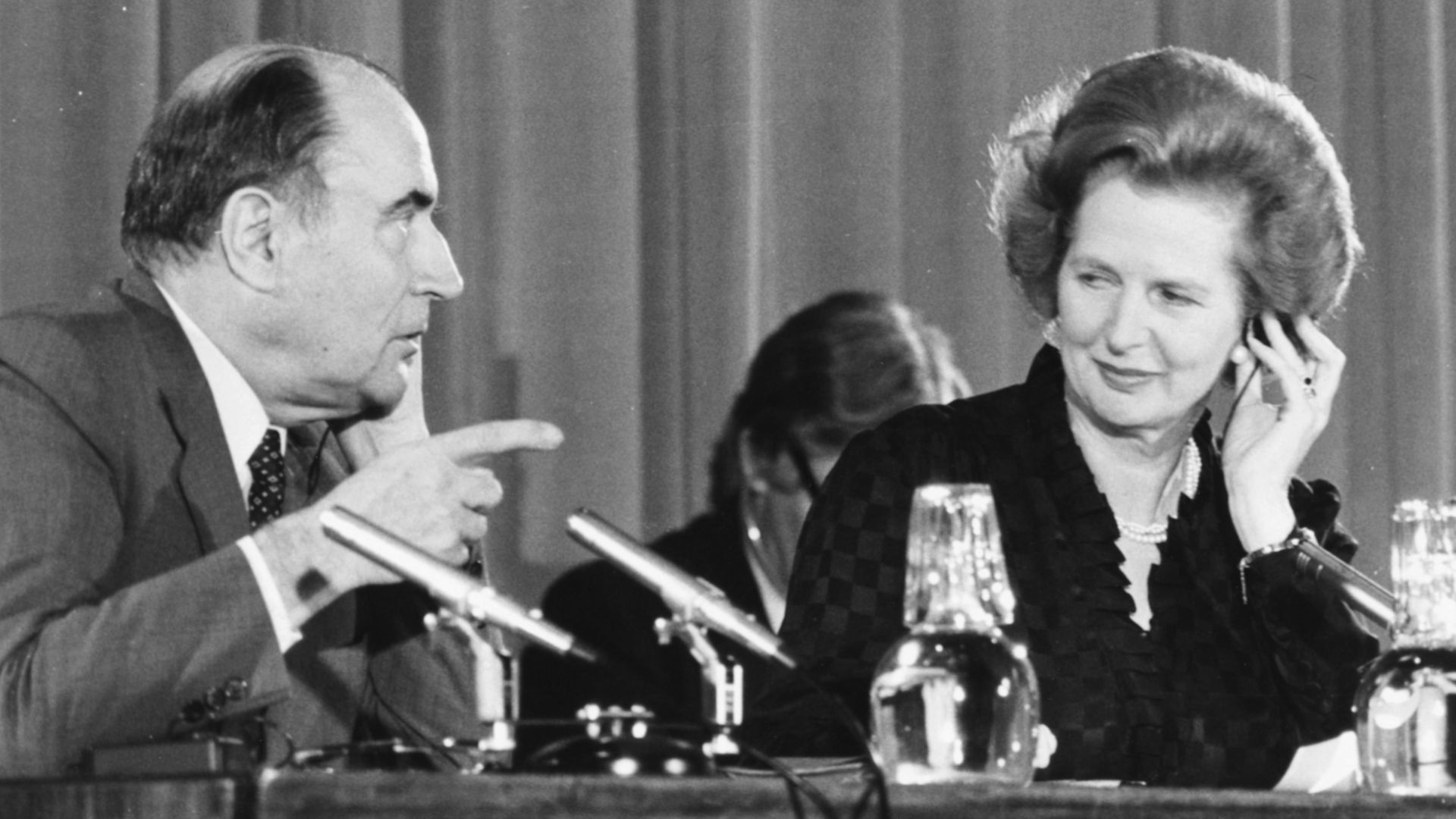
On the 40th anniversary of the election of François Mitterrand, former Europe minister DENIS MacSHANE considers his immense role in European integration and how he enlisted Margaret Thatcher in this project.
Forty years ago France woke up to its first socialist president. The election of François Mitterrand, which came two years after Margaret Thatcher’s victory and one year after Ronald Reagan was inaugurated, transformed European politics.
His arrival in office, in May 1981, in what was then the world’s fourth biggest economy put a road-block in the way of a complete Reagan-Thatcher ideological takeover of the West. Mitterrand took banks and firms into public ownership, backed social investment and promoted worker rights.
After 1980 France could not opt out of global economic changes, including the transfer of much manufacturing to Asia, but in France it was done without the cruelty and brutality of the Thatcher attack on northern England and Reagan’s crusade against trade unions.
Mitterrand’s real contribution to Europe however was to work in partnership with Helmut Kohl, elected a year later, and – astonishingly given their political differences – with Thatcher herself.
Her later turn to anti-Brussels hostility and her adoption as the patron saint of Tory Europhobia has obscured the extent to which she did more than any other British prime minister to lay the foundations of the modern EU which David Cameron led us out of with his reckless plebiscite in 2016.
Mitterrand said of Thatcher that she had “the mouth of Marilyn Monroe but the eyes of Caligula”, but in his first presidency, from 1981 to 1988, he played her beautifully and gently led her into being one of the midwives of today’s EU.
To her surprise, the first call of support Thatcher received when the Argentinians invaded the Falklands in 1982 was from Mitterrand. While Ronald Reagan and his junta-friendly secretary of state, General Alexander Haig, tried to get London to compromise with the military running Argentina, Mitterrand, who followed Latin America politics closely, knew them for the anti-Semitic, incompetent, torturers of helpless people that they were.
He gave Thatcher all the secrets of the feared Exocet missile, and while the British left were condemning her militarism Mitterrand knew that the extraordinary courage of launching an attack to recapture the British territory from 8,000 miles away would, if successful, destroy forever the aura of military rule in Latin America.
After the humiliation of the Buenos Aires junta, the generals in other Latin American states returned to their barracks and democracy sunk fresh roots in the Spanish-speaking Americas.
After Kohl’s election in 1982 Mitterrand also worked with the German conservative chancellor to entice Thatcher into a full-hearted embrace of Europe. As she waved her handbag about demanding her money back, Mitterrand and Kohl threw her a sprat and caught a mackerel.
She won her rebate, which by any standards was fully justified as Britain’s agricultural sector was nugatory at a time when most European transfer payments were made to farmers. But in exchange she agreed, firstly, to increase the Brussels budget so that between 1984 and 1990 the UK payment to Europe went from £654 million to £2.4 billion.
Secondly, she agreed to the single biggest transfer, or sharing, of sovereignty in the history of European construction since 1950. She worked with Mitterrand and Kohl on the Single European Act, which abolished the veto in many areas which had been jealously guarded spheres of national sovereignty.
She also warmly supported the enlargement of Europe to take in the then poor countries like Spain, Greece and Portugal, whose citizens flooded into northern Europe to do the low-pay work that native German, French and Nordic citizens no longer wanted to do. In 1984 she called for Europe to have a common foreign and security policy.
Finally, she agreed to Mitterrand’s suggestion that his finance and economic minister, Jacques Delors, a federal Europhile, should become president of the European Commission.
Delors had steered Mitterrand away from his early Bennite-style enthusiasm for nationalisation and import controls. Once in Brussels, Delors embarked on the most creative, or as Eurosceptics might put it, the most integrative decade in European history.
Delors foolishly fell foul of Thatcher with an ill-judged speech to the British trade unions in 1988 when he lauded a role for unions and workers’ rights in his idea of so-called Social Europe.
In fact, Delors was no militant and a firm opponent of communists in French trade unions. But he failed to understand that the alpha and omega of Thatcher’s sense of Britain meant a relentless confrontation with, indeed, a crushing of militant trades unions such as had become destructively powerful in the 1970s.
On the face of it Delors won and Thatcher lost, as her cri de coeur at the despatch box of “No! No! No!” was followed soon after by her leaving Downing Street. But perhaps she had the last laugh with Brexit.
Mitterrand went on to bind Germany into Europe with the creation of the euro and more shared partnership between European nations. He died soon after standing down as president in 1995. He had a life-long reputation as a schemer, cynic and Boris Johnson-style womaniser and had faults galore, not the least the shameful sinking of the Rainbow Warrior.
But he helped end the Yalta divide of the continent signed off by Roosevelt and Churchill, and changed France and Europe as much if not more than General de Gaulle and certainly made a bigger contribution to European history than any British prime minister since Churchill. He deserves to be better known than he is in Britain.
Denis MacShane is a former minister of Europe. He wrote the first biography of François Mitterrand in English in 1982, published by Quartet









